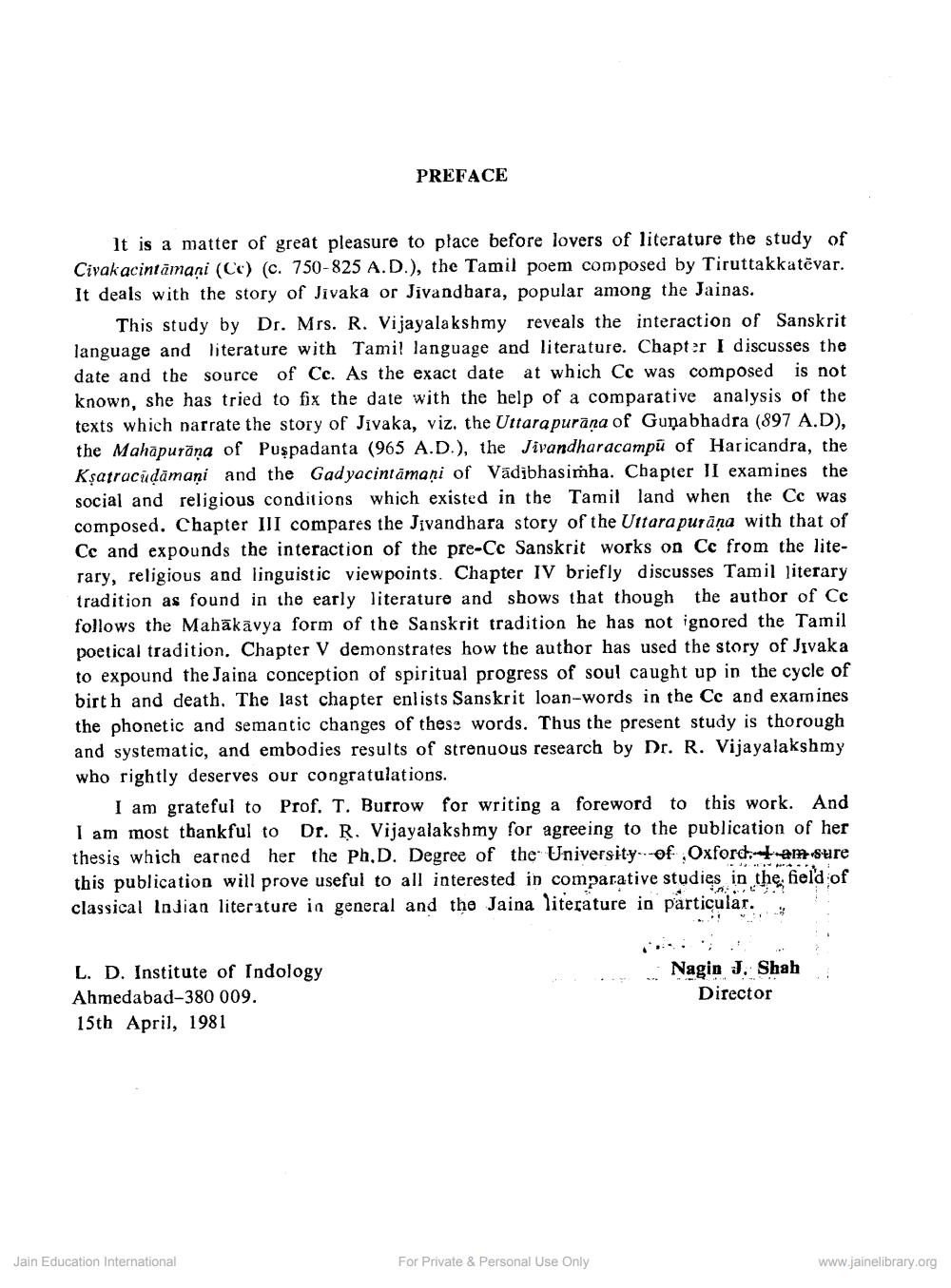________________
PREFACE
It is a matter of great pleasure to place before lovers of literature the study of Civakacintamani (Co) (c. 750-825 A.D.), the Tamil poem composed by Tiruttakkatēvar. It deals with the story of Jivaka or Jivandbara, popular among the Jainas.
This study by Dr. Mrs. R. Vijayalakshmy reveals the interaction of Sanskrit language and literature with Tamil language and literature. Chapter I discusses the date and the source of Cc. As the exact date at which Cc was composed is not known, she has tried to fix the date with the help of a comparative analysis of the texts which parrate the story of Jivaka, viz. the Uttarapurana of Gunabhadra (897 A.D), the Mahāpurāņa of Puşpadanta (965 A.D.), the Jivandharacampū of Haricandra, the Kşatracüdāmaņi and the Gad yacintāmaņi of Vādībhasimha. Chapter II examines the social and religious conditions which existed in the Tamil land when the Cc was composed. Chapter III compares the Jivandhara story of the Uttara purāņa with that of Cc and expounds the interaction of the pre-Cc Sanskrit works on Cc from the literary, religious and linguistic viewpoints. Chapter IV briefly discusses Tamil literary tradition as found in the early literature and shows that though the author of Cc follows the Mahākāvya form of the Sanskrit tradition he has not ignored the Tamil poetical tradition. Chapter V demonstrates how the author has used the story of Jivaka to expound the Jaina conception of spiritual progress of soul caught up in the cycle of birth and death. The last chapter enlists Sanskrit loan-words in the Cc and examines the phonetic and semantic changes of these words. Thus the present study is thorough and systematic, and embodies results of strenuous research by Dr. R. Vijayalakshmy who rightly deserves our congratulations.
I am grateful to Prof. T. Burrow for writing a foreword to this work. And I am most thankful to Dr. R. Vijayalakshmy for agreeing to the publication of her thesis which earned her the Ph.D. Degree of the University of Oxford: am sure this publication will prove useful to all interested in comparative studies in the field of classical Indian literature in general and the Jaina literature in particular.
L. D. Institute of Indology Ahmedabad-380 009. 15th April, 1981
Nagin J. Shah
Director
Jain Education International
For Private & Personal Use Only
www.jainelibrary.org




